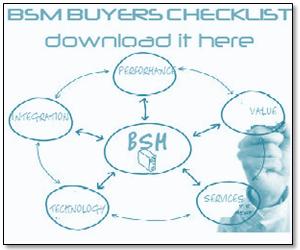
I know I have been quiet for the previous month, I took a little vacation and started becoming more attune to the discussion surrounding data, analytics, security, privacy and the value of our technologically connected world. First we have to rewind to the end of August when I had my first opportunity to discuss and explore the privacy discussion surrounding the use of technology and data to enrich our lives and business on Huff Post Live, “Get off my Cloud: Floating the Risks of Big Data Storage ” (previous Qmunity post, Cloud Discussion: Data Privacy, Availability and Performance on Huff Post Live). All of this technology sits on vast amounts of data that awaits being cracked open whether it be healthcare, location & GPS, marketing attendance, safety, cellular, data services, etc. the list is endless.
When I responded to a request to be on a panel with Huff Post Live, my mind was in my usual place of availability and performance of technology, not data privacy. As I stated during the discussion, I firmly believe if you use technology and electronically push information about yourself into the public, it is searchable and accessible. The first conclusion is to jump directly to privacy and someone monitoring/watching our every move. This is also driven by the folks taking the first stab at using these vast stores of data for what I’ll call “tracking” purposes. This is usual technology behavior, let’s track things and manage our known environment better rather than coming at it from a side of value and a value-add services. Ok, let’s take a few specific examples.
Social Media:
The simplest is Facebook. I’ve had the discussion with colleagues and friends about the accessablity to this information, let’s say when you are seeking employment or acceptance into a program. If it is public, why shouldn’t it be accessable and why wouldn’t you expect it to be searched? I do a regular search on myself to see what shows up as we have long expected background checks to be performed in the past, this is just part of a background check. If you have something questionable, why would you publish it? I was a late bloomer to the world of Facebook and social media for this reason of privacy, but it wasn’t because I didn’t understand the risk, it was because I didn’t understand how to secure and use it properly. However, I use my credentials and name as it is part of building my own brand and credibility very regularly when I publish and comment and thus how I end up on panels like Huff Post Live. I look at the value and positive side of participating in the conversation, managing and using my credentials accordingly. I do recognize it is on me to manage the data and thus how it could be subsequently used.
Healthcare:
While on vacation in the local paper, cayCompass.com, there was an article regarding a new healthcare facility and the technology going into it to provide higher levels of healthcare to the residents. One of the discussion points was doctors using data to better diagnose patients. Again, the article took the negative side first regarding the “must use” the technology for a diagnosis. I’m not sure I want to remove the human subjective element from my doctor, however, I would welcome the use of my history and an all encompassing view of my current condition, weighing that against a database of possibilities that no human could carry with them daily, to make a better diagnosis. Why not make use of being able to carry that encyclopedia of information around with you to deliver better patient care? Again, the value side of the equation versus the“monitoring” of the physicians side of the equation. Both are useful and valuable.
Earlier this week in InformationWeek, there was an article titled, “Healthcare Execs Must Prepare for Big Data“, where the same discussion continues as well as knowing the location of patients, doctors, equipment to insure a safer environment and getting people and equipment where it is most needed. I most enjoyed the Wayne Gretzky quote: “A good hockey player plays where the puck is. A great hockey player plays where the puck is going to be.” We have embraced technological advances to assist in healing us faster, making surgery less invasive and remeding illnesses that just a decade ago were less treatable. Why is using the vast amounts of data for split second decisions any different?
GPS:
There are several technologies that fall into this category. The two that caused alarm and again I would suggest it is because it was hyped against the tracking feature as the initial focus versus the value it brings to the table. On Huff Post Live this week, “Texas School District Reportedly Threatening Students Who Refuse Tracking ID, Can’t Vote For Homecoming“, with the crux of the discussion being the embedding of an RFID chip into school ID cards to be used for tracking attendance and insuring that funding continues to the schools. This is useful, but not the value to the public and causes debate. How many of you ever punched a time clock? I have on multiple occasions, well that was an early and crude form of attendance monitoring / tracking. Why is it now that we can use technology to more accurately track and rapidly assess to take action of value with the data different?
Flip the debate and think about some of the most tragic incidents that have occurred in our schools in the last decade and one that is close to home for me at VA Tech. When I was in school, we roamed campus freely including all of the buildings. We didn’t have cell phones, we knew our dormmates, we phoned each other on land lines, we had an idea of where those close to us were, we stuck together in groups and I knew I could phone one of the boys from the dorm to meet me and walk me back to the dorm in the dark if I got stuck somewhere alone and felt unsafe. So again, I challenge folks not to just look at it from a tracking standpoint, but from a ease of security standpoint. Who’s in the building? Where are my kids? Did they make it to the bus? The list goes on.
During my discussion on Huff Post Live it was more around the use of cellular data. I watched a television segment recently on the tracking of license plates and taking pictures of cars around a city with the purpose being repossession. Again, under ordinary situations, no one is tracking the ordinary. Under stressful situations, it can assist in regaining a safe situation and uncovering details that might not have been available previously.
We could go on for hours with this one as it generates the most debate, however, we all have location tracking in our cell phones and tablets. We like to be able to sound an alarm or find our device, pinpoint a good restaurant, provide directions in a pinch, the list is endless. There is great value in using the technology and data and we use it everyday whether consciencously or not.
Marketing:
In the Wall Street Journal earlier this week the article, “Big Brother, Now at the Mall“, discussed how a mall kiosk is using facial recognition software to estimate sex and age to present advertisements to those seeking information. This is using data to drive value to both the consumer and the retail organizations. This has been going on for a very long time. How many rewards cards do you carry and use? The ability to present items to you has been happening here for quite a while. If this use of data is troublesome, stop using the cards for the points / discounts and asking for assistance. However, the value is to both the organization and us as consumers in finding items that might interest us more than others and stocking retail organizations with items more in tune with the demographics of the location and patron buying patterns. Again, let’s seek the value in the technology and stop jumping to the Big Brother conclusion, but the answer is always simple, don’t use the technology.
Security:
I’ll end with this final article also from this week’s Wall Street Journal, “House Report On Huawei, ZTE Will Pose Security Questions For CIOs”. The article suggests that a manufacturer of a cellular device is collaborating for purposes of espionage. Whether the threat is true or not, it points out the very real requirements to take security and use of data and devices very seriously in our organizations and plan for it appropriately. This week Sally Hudson, Security Research Director, of IDC and a colleague of mine, Tom Crabb, Senior Product Marketing Manager, presented a webinar, “Security Access Governance and the New Normal”, on this topic of knowing who, where, why, etc. is accessing data you own and for what purpose as the perimeter has widened over night and is extremely fluid. They discuss the risks and how to best secure your data. Ensuring you have secured your data then enables you to leverage that data with analytics in powerful ways to drive competitive advantage into your organization.
This is only the tip of the iceberg of the possibilities that lie ahead in our digital world. As IT professionals, we must constantly think of security, build it into our services, use of data and the value we can provide to our customers everyday. Technology, including the use of big data, will drive competitive advantage and the next generation of innovation, but it must be used, managed and secured wisely.
Finally, “Technology without Imagination – Commodity — Technology with Imagination – Endless Possibilities” is something I firmly believe and we have all benefited. I challenge this coming wave of technologists to not make the mistake of the past in first applying the use of big data technology as inward focused analytics, but seek how to create value first and secure / manage it appropriately.














